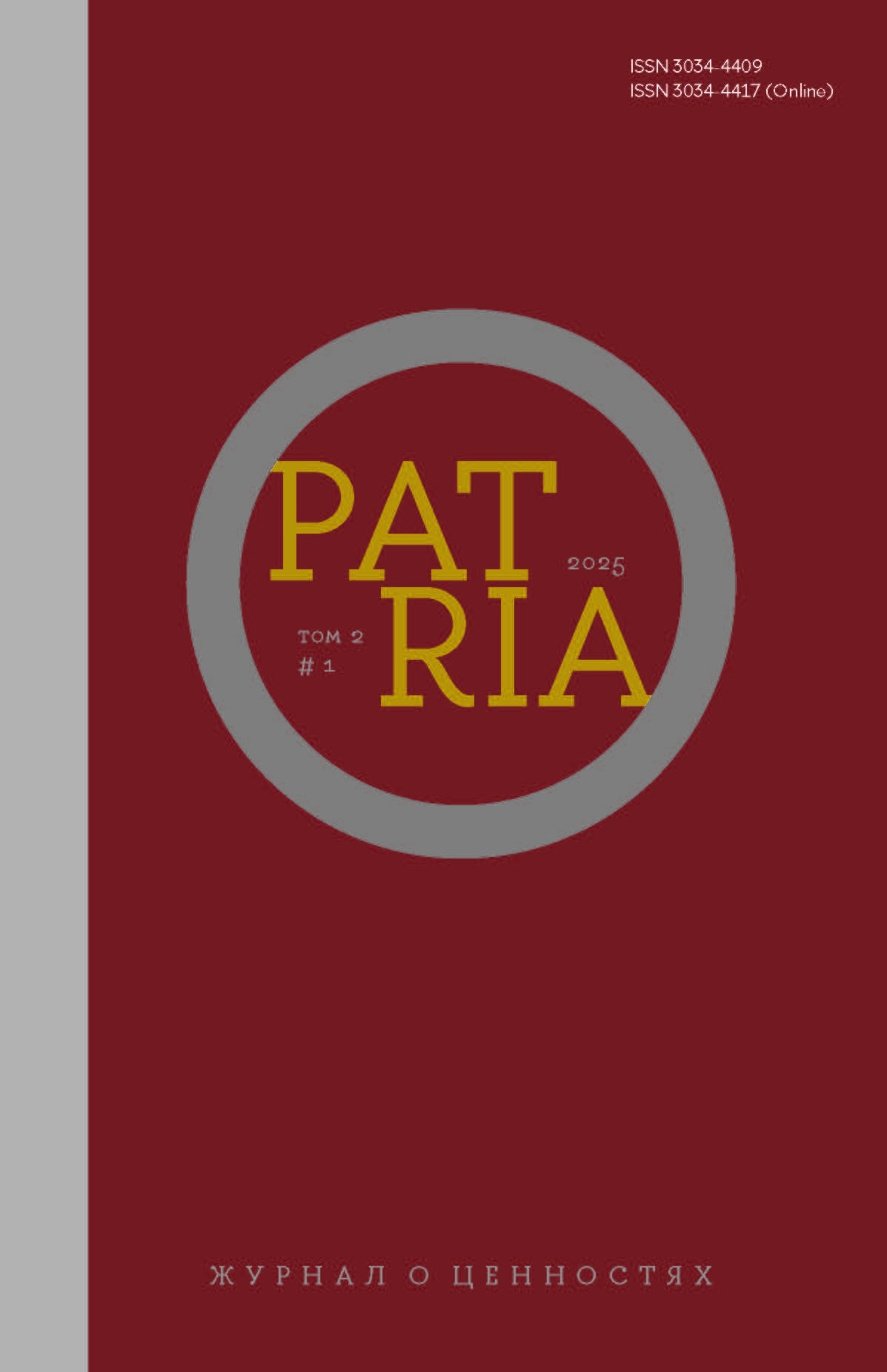Traditional Values in the Upbringing of Chinese Children
Challenges and Adaptations in Contemporary Chinese Society
Аннотация
This paper examines the traditional values in the upbringing of Chinese children, focusing on the influence of Confucian philosophy, the shift towards individualism, and the evolving role of equality of men and women in modern Chinese society. Historically, Chinese parenting emphasized collectivism, filial piety, and academic success. In recent years, changes in society, like increased individualism, globalization, and progress in equality, have led to a shift in how children are raised. While women have made strides in education and career opportunities, old social roles persist, especially regarding household responsibilities. Women continue to face societal pressures to balance professional success with domestic duties, showing that old cultural values remain strong. This paper explores these tensions and the ongoing adaptation of parenting practices in the context of an evolving society.
Скачивания
Литература
Attané I. (2013) The Status of Women in Traditional Chinese Society, Springer.
Berna I.-B. (2013) “Democracy and Gender Inequality in China”, Journal of Research in Gender Studies, vol. 3, no. 1, pp. 119–124.
Bian Q., Chen Y., Greenfield P. M., Yuan Q. (2022) “Mothers’ Experience of Social Change and Individualistic Parenting Goals over Two Generations in Urban China”, Frontiers in Psychology, no. 12.
Chou M.-J., Tu Y.-C., Huang K.-P. (2013) “Confucianism and Character Education: A Chinese View”, Journal of Social Sciences, vol. 9, no. 2, pp. 59–66.
Chow E. N.-L., Zhao S. M. (1996) “The One-Child Policy and Parent-Child Relationships: A Comparison of One-Child with Multiple-Child Families in China”, International Journal of Sociology and Social Policy, vol. 16, no. 12, pp. 35–62.
Chua A. (2011) Battle Hymn of the Tiger Mother, Minumsa.
Cui H. (2022) “Problems and Reasons for Gender Inequality in China”, International Journal of Social Sciences and Humanities, vol. 3, no. 3.
Culham T., Lin J. (2020) “Daoist Cosmology and Axiology, or the Philosophy of Qi and Virtues”, Daoist Cultivation of Qi and Virtue for Life, Wisdom, and Learning, Springer, pp. 21–32.
Fong V. L. (2004) Only Hope: Coming of Age under China’s One-Child Policy, Stanford University Press.
Gu Z. (2012) Confucian Family Values as Universal Values in the 21st Century, Beijing: Peking University Press.
Gu Z., Zhang R. (2024) “Management Behaviour in Confucian Culture”, Managerial and Decision Economics (https://onlinelibrary.wiley.com/doi/10.1002/mde.4249, accessed on 13.02.2025).
Huang Y. (2016) “Research on the Modernity of Confucianism”, Social Science Research, no. 6, pp. 125–135.
Jacka T., Kipnis A. B., Sargeson S. (2013) Contemporary China: Society and Social Change, Cambridge University Press.
Jiang J. (2019) “Women’s Rights and Gender Equality in China: The Development and Struggle in Chains of State Feminism”, Handbook on Human Rights in China, Elgar, pp. 253–273.
Joseph C. (2023) “Confucian Views of Children and Childhood”, Oxford Bibliographies (https://www.oxfordbibliographies.com/display/document/obo-9780199791231/obo-9780199791231-0277.xml, accessed on 13.02.2025).
Kuefer M. (2016) “Battle Hymn of The Tiger Mother”, Journal of Family Studies, vol. 22, no. 3, pp. 123–134.
Lee S. (2024) “Confucian Familialism and the Crisis of Care”, Hypatia: A Journal of Feminist Philosophy, vol. 39, no. 3, pp. 597–615.
Lee Y. (2024) “Analysis of the Impact of Chinese Parenting Styles on Adolescent Social Competence: From a Perspective of Family Systems Theory”, Journal of Education and Educational Research, vol. 10, no. 1, pp. 148–156.
Li J. (2024) “The Impact of Confucian Ethics on Social Harmony in Contemporary China”, Journal of Philosophy, Culture and Religion, vol. 7, no. 2, pp. 1–12.
Liu J. (2024) “Research on the Practice Path of School-Home-Community Collaboration in Nurturing Children under the Concept of Child-Centeredness”, Education Reform and Development, vol. 6, no. 6, pp. 163–174.
Low K. C. P. (2012) “Confucianism Versus Taoism”, Conflict Resolution & Negotiation Journal, vol. 2011, no. 4, pp. 111–127.
Luo M. S., Chui E. (2019) “Moving from Rural to Urban China: How Urbanization Affects Women’s Housework”, Sex Roles, vol. 81, no. 3, pp. 127–139.
Ming E. (2023) “Research on Gender Differences and Gender Discrimination in Chinese Education”, Lecture Notes in Education Psychology and Public Media, vol. 31, pp. 97–101.
Qi Z., Du Y. (2020) “Chinese Parenting and the Collective Desirable Path through Sociopolitical Changes”, Chinese Families: Tradition and Modernity, Cham: Springer, pp. 127–140.
Rothmann M. (2023) “Confucianism and the Family”, The Oxford Handbook of Confucianism, Oxford: Oxford University Press, pp. 365–381.
Shao W. (2024) “Population Crisis? Reflection on China’s Compulsory Family Planning Policy”, Authorea (https://www.authorea.com/users/781167/articles/935675-population-crisis-reflection-on-china-s-compulsory-family-planning-policy, accessed on 13.02.2025).
Steele L. G., Lynch S. M. (2013) “The Pursuit of Happiness in China: Individualism, Collectivism, and Subjective Well-Being during China’s Economic and Social Transformation”, Social Indicators Research, vol. 114, no. 2, pp. 441–451.
Tao X. (2016) The Transformation of Chinese Traditional Education, Brill.
Thathong K. (2012) “A Spiritual Dimension and Environmental Education: Buddhism and Environmental Crisis”, Procedia — Social and Behavioral Sciences, vol. 46, pp. 5063–5068.
Wang L. (2018) “Family Miniaturization and Its Influencing Factors in Urban China”, Canadian Social Science, vol. 14, no. 5, pp. 32–35.
Wood A. T. (2023) “Confucianism and Social Structure”, The Oxford Handbook of Confucianism, Oxford: Oxford University Press, pp. 382–394.
Xie Y. (2013) Gender and Family in Contemporary China, Springer.
Xu J. (2009) “The Universal Sentiment of Daoist Morality”, Frontiers of Philosophy in China, vol. 4, no. 4, pp. 524–536.
Yan Y. (2020) The Individualization of Chinese Society, Routledge.
Yang Y. (2023) “Attitudes toward Gender Roles in Child-Rearing and Their Socioeconomic Differentials in Contemporary China”, Chinese Journal of Sociology, vol. 9, no. 4, pp. 598–614.
Yu J. (2024) “The Impact of the Two-Child Policy on Urban Family Dynamics in Beijing: Parental Roles, Child Development, and Family Economic Strategies”, Studies in Social Science & Humanities, vol. 3, no. 6, pp. 23–33.
Zhang M. (2023) “On the Diversity of Scientific Culture and the Tradition of Postpartum Confinement in China”, Cultures of Science (https://journals.sagepub.com/doi/10.1177/20966083231201453, accessed on 17.05.2024).
Zeng S., Li F., Ding P. (2020) “Is Being an Only Child Harmful to Psychological Health? Evidence from an Instrumental Variable Analysis of China’s One-Child Policy”, arXiv: Applications.
Copyright (c) 2025 Национальный исследовательский университет "Высшая школа экономики"

Это произведение доступно по лицензии Creative Commons «Attribution» («Атрибуция») 4.0 Всемирная.




